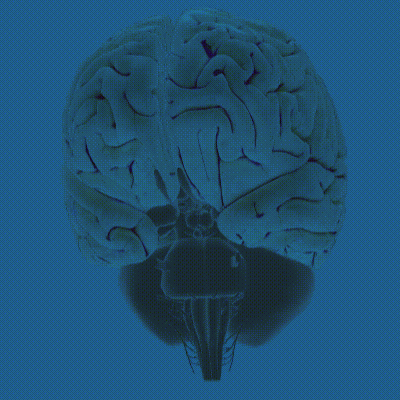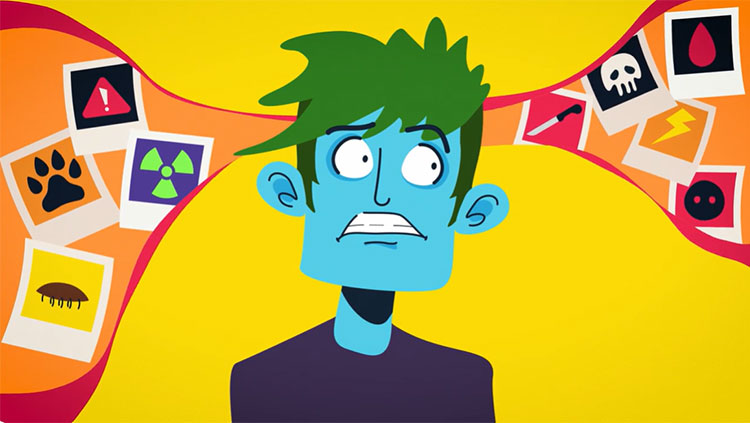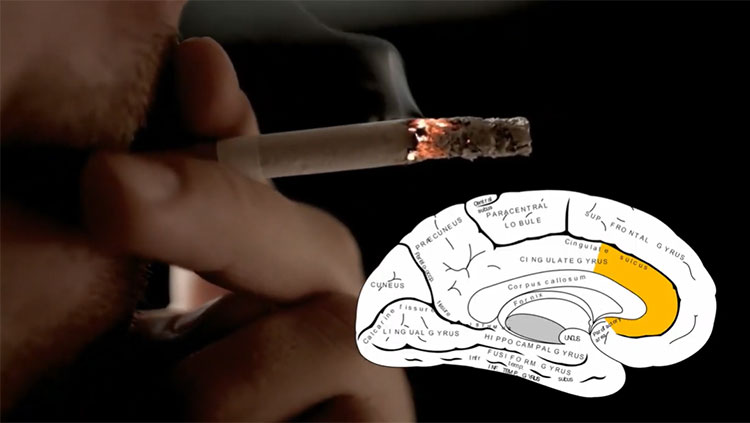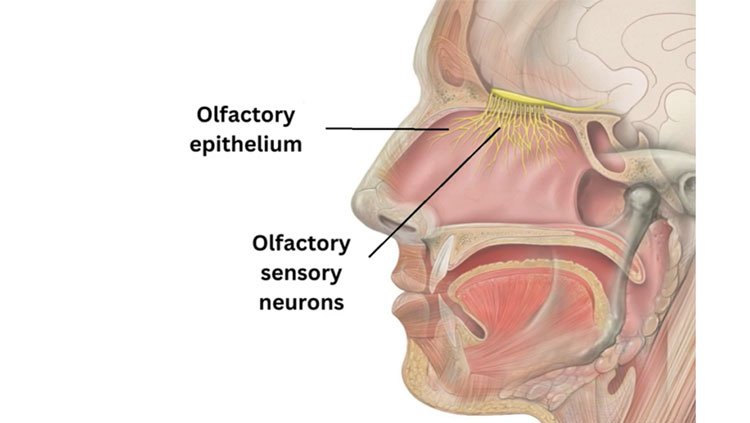Burnout Exhausts Brain Function and Physiology
- Published14 Mar 2024
- Author Zunnash Khan
- Source BrainFacts/SfN

On a Monday morning, you wake up to find your life in an organizational mess. The workload feels overwhelming as you drag yourself through your day, but you can't seem to get it all done. Now, the weight of tomorrow’s tasks feels even more disorienting. This vicious cycle perpetuates the constant state of mental and physical exhaustion caused by chronic stress, known as burnout. If left untreated, it can deplete your mental and physical energies to the point of total shutdown.
Many of us get guilt trips for giving in to extra hours of sleep when we’re tired. Studies suggest chronic stress and unhealthy work environments constantly keep the brain ‘listening’ for threats and preparing to respond to them. Like a computer running multiple background programs that consume its memory, constant effort occupies cognitive resources and leads to exhaustion and burnout.
“I think part of the confusion for the public is that burnout is something that we can’t medically diagnose. It’s an occupational phenomenon,” says Anthony Montgomery, an organizational psychologist from Northumbria University in the U.K.
To understand and treat the condition effectively, scientists are looking into the biological correlates of burnout. They are finding burnout diminishes cognitive performance, making people exert themselves more to achieve normal performance and affecting their ability to remember common details about daily tasks.
Consistent Performance Under Stress
Burnout may occur in part from a prolonged stress response, an evolutionary survival mechanism for handling threats. For example, when primitive Homo sapiens saw a lion on the Serengeti, they instinctively ran faster to escape. This “fight-or-flight” response flooded their systems with stress hormones like adrenaline and cortisol, enabling them to recruit mental and physical resources to flee and save their lives. Once they reached safety, they could relax as their bodies quelled the stress response.
The same chemical response kicks in when you have a difficult meeting with your boss. But it may fail to subside as constant stressors to perform well and keep your job stay with you even after the meeting ends. Overexposure to these hormones over time dysregulates sleep and other homeostatic mechanisms in the body, making it more prone to burnout.
Montgomery conducted seven tests measuring how burnout impacts different aspects of cognitive function in a 2022 study. He reported that individuals with higher levels of burnout performed worse at tasks related to executive functions of the brain, which include planning, switching, and coordinating different tasks.
“Executive functions are like the brain’s conductor, and the other functions are the musicians,” explains Kaisa Hartikainen, clinical neurologist and brain scientist from the University of Tampere in Finland. She explained that while performing a well-practiced melody, you don’t need the conductor, but with a more challenging task, you do. These functions involve the prefrontal cortex — the cognitive control center of the brain.
Waning Ability to Perform and Remember
In an October 2023 study, Hartikainen designed a versatile computer-based reaction time test that tapped into executive functions. Participants with electroencephalography (EEG) electrodes across their scalps pressed a button in response to whether a triangle was pointing up or down. The rule specifying which color indicated a need to respond and which to withhold a response changed frequently.
Intriguingly, she found the burnout group performed tests just as well as the control group. But EEG recordings suggested those in the burnout group were slower to transition from one cognitive process to another and recruited more task-related neurological resources than those in the control group to compensate for sluggish processing.
Laura Sokka, a clinical neuropsychologist from the Finnish Institute of Occupational Health, observed a similar effect in 2016. Sokka recorded EEGs of people while they performed visual tasks on a computer with varying memory loads. Participants were required to focus on visual memory tasks and respond to an occasional ‘distractor’ sound, which measured alertness. She found burnout depleted individuals’ alertness to surrounding stimuli while they actively focused on completing tasks.
"We [also] observed a decrease in the working memory-related responses over the posterior scalp and an increase over the frontal areas,” says Sokka. Activity across posterior brain regions reflects the use of working memory, the ability to remember short-term details about tasks, she explained. Moreover, increased frontal area responses meant extra consumption of cognitive resources in performing those tasks — but when burnout got worse, the frontal brain failed to fully rescue performance.
Looking at Burnout as a Physiological Disorder
“It’s important that we find out what happens in the brain when we suffer from burnout so that we can show it’s not just our opinions [or feelings], but there’s something physiological behind those symptoms as well,” said Sokka.
Contrary to popular belief, Montgomery says burnout is not just linked to our performance but starts as a social phenomenon. “The way we interact with people has a big influence on our well-being,” he said. “And the degree to which we feel competent and in control is mediated by how well we get on with people around us. It’s organizationally driven.”
"We can’t separate psychology from the brain. But we need objective measures to diagnose patients reliably and to study intervention strategies.”
Society looks at burnout as a coping mechanism problem, says Hartikainen. But that’s what people thought about depression until drug companies found it’s a brain disorder they can treat. “If burnout lasts long enough, there are alterations in the brain structure and in the brain functions,” she explained.
Hartikainen says severe burnout also affects our motivation and ability for interventional self-care, like yoga or meditation. When somebody experiences burnout, their stressful routine is typically hard to break out of, and they might lack the capability, energy, and executive function resources to engage in healthy activities.
She further stressed a message to workplaces and policymakers: Overloading the brain with unrealistic tasks and deadlines can cause a harmful cognitive strain, affecting people’s productivity and quality of personal interactions. “We need to start looking at occupational burnout as a problem with the brain,” she said.
CONTENT PROVIDED BY
BrainFacts/SfN
References
Harmatiuk, D., Tukaiev, S., Popov, A., Makarchuk, M. (2023). Burnout-Specific Changes in Brain Activity (Under Way to Exhaustion). Signal Processing Symposium (SPSympo), Karpacz, Poland, 2023, 57-62, https://doi.org/10.23919/SPSYMPO57300.2023.10302682
Koutsimani, P., & Montgomery, A. (2022). Cognitive functioning in non-clinical burnout: Using cognitive tasks to disentangle the relationship in a three-wave longitudinal study. Frontiers in Psychiatry, 13, 978566. https://doi.org/10.3389/fpsyt.2022.978566
Pihlaja, M., Peräkylä, J., Erkkilä, E. H., Tapio, E., Vertanen, M., & Hartikainen, K. M. (2023). Altered neural processes underlying executive function in occupational burnout-Basis for a novel EEG biomarker. Frontiers in Human Neuroscience, 17, 1194714. https://doi.org/10.3389/fnhum.2023.1194714
Sokka, L., Leinikka, M., Korpela, J., Henelius, A., Ahonen, L., Alain, C., Alho, K., & Huotilainen, M. (2016). Job burnout is associated with dysfunctions in brain mechanisms of voluntary and involuntary attention. Biological Psychology, 117, 56–66. https://doi.org/10.1016/j.biopsycho.2016.02.010


















